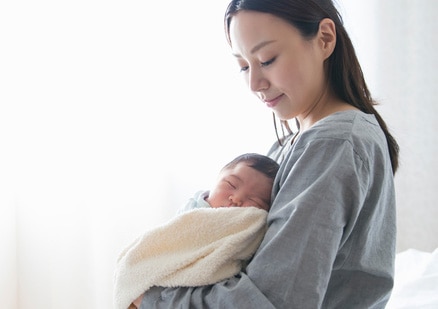During your stay

At the Kaiser Permanente Family birth center, every family has their own private labor and delivery suite that includes all the comforts of home (and then some). Explore one of our labor and delivery suites and discover all that we have in store for you and your family.
Recovery and bonding
After your baby is born, you’ll move into your private Mother/Baby suite where you’ll recover, bond, and learn as a family with your baby.
Visiting
http://www.kpfamilybirthcenter.com/
Newborn photos
A photographer is available for hire to take photos of your baby, from birth and after you go home. Ask your nurse for more information.
Newborn security
Your baby’s security is important to us. Never leave your baby unattended. If you need to be away from your baby for any reason, let your nurse know so we can make sure your little one is safely cared for.
After your baby is born, you, your baby, and your partner will receive matching wrist bands. A wireless radio frequency band will be placed on your baby’s ankle to make sure he or she remains in the mother-baby unit, which is also equipped with security cameras.
Newborn screenings
All newborns undergo painless cardiac and hearing screening tests. The hearing test is performed by a newborn hearing screening technician and the cardiac test, which looks at your baby’s heart health, will be performed by your nurse. These tests will be done in the postpartum unit before you go home.
Breastfeeding
Breast milk is nature’s perfect first food, and breastfeeding can enhance the bond between you and your baby. The American Academy of Pediatrics recommends exclusive breastfeeding for 6 months and continued breastfeeding through the first year of life.
Learn more about breastfeeding >
Support for successful breastfeeding:
- The “Breastfeeding with Success” class will help you learn about breastfeeding positions, milk supply, preventing and managing pain, pumping, milk storage, and working while breastfeeding.
- We encourage skin-to-skin contact, which triggers healthy baby behaviors. It helps your little one stay warm on their own, breathe on their own, and learn to nurse.
- All of our labor and delivery and postpartum nurses are trained breastfeeding specialists. We also have a team of internationally board-certified lactation consultants at our hospitals and outpatient breastfeeding clinics.
Lactation consultants
If you need additional support, a lactation consultant will come to help you while you’re in the hospital. Lactation consultants are also available after you go home.
Leaving the hospital
After you have your baby, you’ll be seen daily by a midwife or obstetrician who will care for you during recovery and help determine when you’re ready to go home. The length of your hospital stay will depend on a variety of factors.
If you have a vaginal birth, you may be ready go home when your baby is 1 day old. If you have a cesarean birth, you’ll need to stay a bit longer.
A board posted in your room lists all the things that need to happen before you’re discharged. On the day you leave the hospital, we’ll try to complete the discharge process in the morning so you can get home and settled in for that first night on your own with baby.
Secure checkout
When you’re ready to leave, your support person should bring the car up to the front of the hospital where you may have entered in labor. A staff member will wheel you and your baby downstairs after you’ve gone through our secure checkout.
Car seat
Hawaii law requires that you take your baby home in a car seat. Our staff is not licensed to assist or direct you with car seat usage or installation, so we encourage you to take our “Infant Safety and CPR” program before your baby is born. It also helps to have your car seat installed a few weeks before your baby is due.
If your baby was born before 37 weeks, we’ll conduct a car seat challenge test. This test is done before you’re discharged and checks your baby’s breathing while in the car seat. It does not check the proper installation of your car seat.
Car seat installation resources
Always read and follow the car seat instructions, as well as your vehicle seat belt instructions. You can find guidelines for safe car seat installation online. You can also call 1-866-SEAT-CHECK (1-866-732-8243), or go to seatcheck.org to find a seat-inspection location certified by the National Transportation Safety Board.